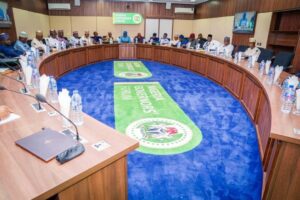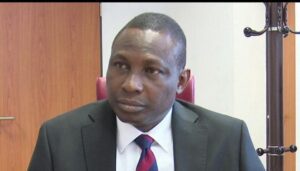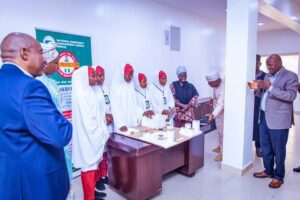
AfDB, UNECA, UNDP, AU agree on partnerships for climate impact
Partners of the Africa Nationally Determined Contributions (NDCs) Hub have stressed on the importance for African countries to implement their NDCs to adapt to climate impacts.
This is contained in a statement from the Communication and External Relations Department, African Development Bank (AfDB) on Wednesday.
NDCs represent the commitments of each country to reduce greenhouse gas emissions and adapt to climate change.
They were agreed to by countries during the Climate Change Conference of the Parties (COP) in Paris in 2015, a commitment known as ‘The Paris Agreement.’
Partners hosted a session titled “Enabling faster and efficient NDC support through advocacy and partnerships” at the just-ended Africa Climate Week.
The partners included the AfDB, United Nations Economic Commission for Africa (UNECA), the African Union Commission (AUC), United Nations Development Fund (UNDP) and the Global Green Growth Institute.
The representatives from across the continent gathered to share their experiences of implementing the NDCs.
They noted that partnerships and effectiveness in measuring, reporting and verifying greenhouse gas emissions would be key to African countries hitting their various targets.
The session showcased a collaborative platform for partner institutions to leverage one another’s strengths to support African countries deliver their NDCs faster and efficiently.
In his opening remarks, Gabon’s Minister of Water, Forest, the Sea and Environment, Prof. Lee White said: “Gabon is a net positive country and is committed to remain carbon neutral to 2050.”
White noted that Gabon had submitted a second NDC in 2022 in collaboration with several development partners, some of them members of the NDC Hub.
Speaking of one of the country’s key sectors, he stressed that Gabon’s timber should not be embargoed as it is certified, and produced legally and sustainably.
He also pressed a point made by Gabon’s President Ali Bongo Ondimba earlier during Africa Climate Week to, “let Africa lead” on climate issues.
“The continent has a lot to offer,” he said.
Mr Jean-Paul Adams, UNECA’s Director for Technology, Climate Change and Natural Resources Management, said: “To be effective, NDCs needed to be integrated in national budgeting systems to receive funding from the national treasury.”
Looking ahead to COP27, Adams said that Africa’s priorities should include a just and equitable transition, finance and resource mobilisation through such instruments as debt for climate swaps.
Dr Richard Munang, Deputy Director of the United Nations Environment Programme (UNEP) Africa Office said there was no one size fits all model.
Munang added that African countries should consider their own individual contexts and prioritise sectors in which they enjoy a comparative advantage.
He also stressed the importance of tapping Africa’s youth dividend.
Davinah Milenge, AfDB’s Principal Programme Coordinator in the Climate Change Department said, “The African Development Bank established the Africa NDC Hub to leverage the power of partnerships in delivering the NDCs with efficiency, urgency and at scale.”
Milenge said the bank had targeted its NDC support to prioritise a holistic approach that stimulates economic growth, and delivers inclusivity and regional integration.
She cited the Desert to Power initiative, which will add 10 gigawatts of solar generation capacity and provide electricity to around 250 million people in 11 Sahelian countries by 2030.
Representatives from Kenya, Nigeria and Gabon provided country experiences on NDC implementation, current needs and priorities.
During the last session of the side event, Africa NDC Hub partners institutions outlined their country-support programmes for NDC implementation.
Africa NDC Hub partners will launch a flagship publication at COP27 outlining progress in NDC implementation across nine thematic areas.
The report is expected to spotlight key priorities ahead of the United Nations Global Stocktake (GST) on the Paris Agreement, scheduled for 2023.



